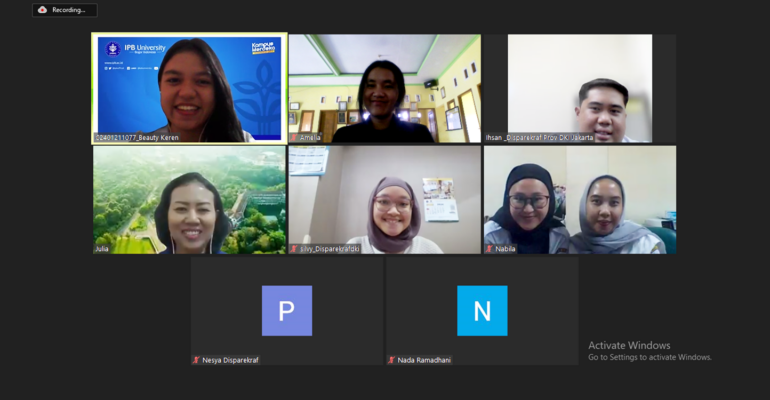IPB University PKM RSH Team Assesses the Potential of Thalassotherapy Development for Healing Generation Z

The Student Creativity Program (PKM) has led three IPB University students from the Department of Aquatic Resources Management (MSP), Faculty of Fisheries and Marine Sciences (FPIK) to conduct research in the field of social humanities (RSH) entitled ‘The Power of Healing Sea’.
IPB University students’ research was conducted to analyze the perceptions and preferences of gen z in choosing the beach as a healing place and thalassotherapy media. This research aims to develop beach tourism as a place of healing and explore the potential of health tourism in Indonesia.
“The expected output of this research is further development and support from the government to promote and implement thalassotherapy as a health tourism attraction, especially in coastal areas of Indonesia,” said Beauty Keren, head of the PKM RSH The Power of Healing Sea team.
For gen Z, the concept of healing is better known as a way to cope with stress. Based on the results of the Perceived Stress Scale (PSS), 90.6 percent of 106 gen Z respondents who live in the Jabodetabek area are experiencing moderate stress.
Generation Z is very interested in the concept of healing and thalassotherapy on the beach. Based on the research results, 93.4 percent of respondents agreed that seeing the beach atmosphere gives a sense of calm, and 92.5 percent agreed that hearing the sound of the waves has a significant relaxing effect.
In addition, 96.2 percent of them agreed that healing with thalassotherapy is more beneficial, and 80.2 percent would use thalassotherapy facilities if they were available at the beach.
Seeing Gen Z’s high interest in thalassotherapy, the RSH IPB University Beauty Keren PKM team along with other students, Amelia, Nada Ramadhani, and Julia Eka Astarini, SPi, MSi as the accompanying lecturer, conducted an in-depth interview with key persons from the Directorate of Marine Services, Ministry of Maritime Affairs and Fisheries (KKP) and the Tourism and Creative Economy Office (Disparekraf) of DKI Jakarta Province. This aims to find out how thalassotherapy-based health tourism is managed on Indonesian beaches today.
“Maybe in the future if there is a specific development proposal regarding thalassotherapy, we can make an ancient thalassotherapy method like Merewether Ocean Baths, Australia,” said Khamid Baekhaki as the Coordinator of the Seawater Utilization and Biopharmacology Work Team, Directorate of Marine Services, KKP.
He added that modern thalassotherapy methods have been developed in Indonesia. Modern thalassotherapy is a combination of chemical and biological materials from the sea as a healing method such as spa salts or medicines from marine materials, some of which are already under the auspices of KKP.
“Maybe according to the research presentation of The Power of Healing Sea team, this thalassotherapy method can be our next material to create a health tourism package,” said Ihsan Ramadhan as Technical Staff of Research and Development Expert, Disparekraf Jakarta Province. (*/Rz) (IAAS/SNI)



